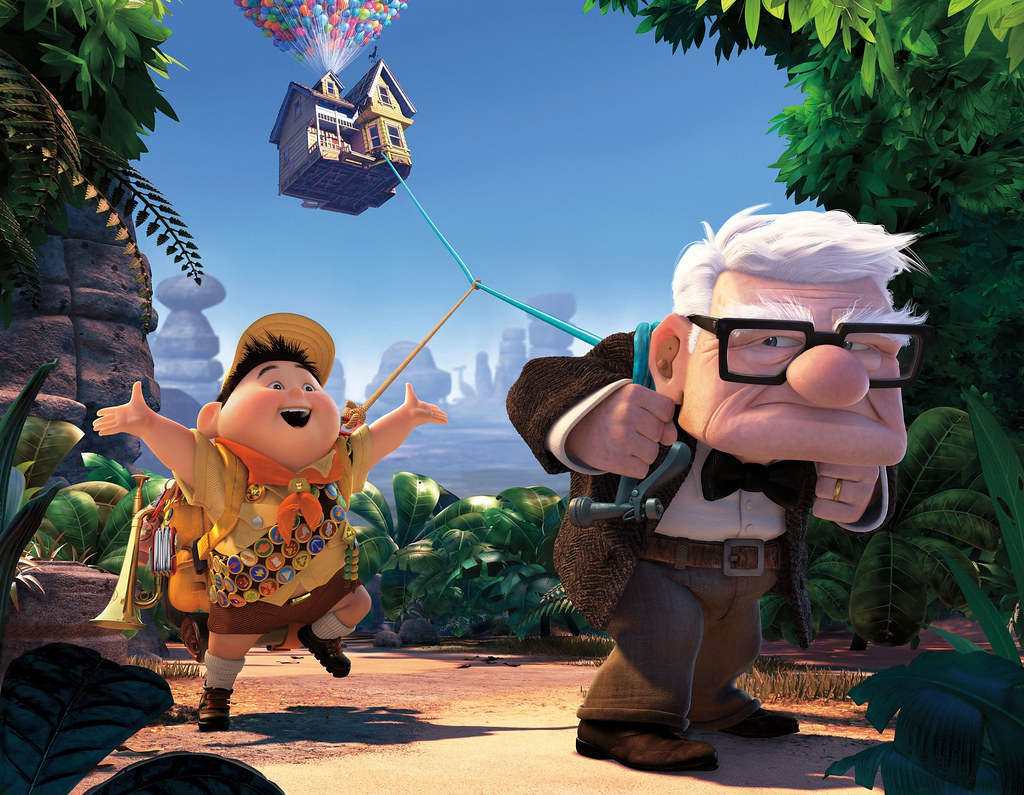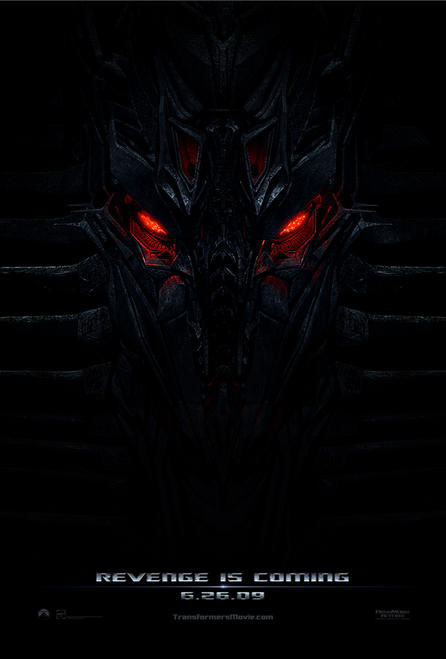Because it's just easier to post this instead of attempt to link to it, Ron Silliman's review of Up:
Monday, June 01, 2009

Up is the finest American full-length cartoon feature I have ever seen, and the first one that approaches the best work of Hayao Miyazaki, whose influence is palpable in this extraordinary project even more than those of Disney or Pixar, the two companies that combined to bring it to fruition. Both have a long and serious commitment to the cartoon form. Disney virtually invented it, as the conglomerate ghost of Uncle Walt loves to remind consumers everywhere. Disney even became Miyazaki’s American distributor principally so that it wouldn’t be threatened by his inventiveness. And Pixar has been, along with Miyazaki, a primary source of innovation in animated film over the past 15 years. Indeed, Bob Peterson, who wrote Up, got his start as a layout artist on Toy Story, Pixar’s break-through feature. His one previous feature-length screenwriter credit was for Finding Nemo in 2003, although he contributed material to Ratatouille & Monsters, Inc. and has served as a voice actor in many animated projects. In addition to writing Up, Peterson voices Dug, the mongrel who decides that elderly Carl Fredricksen (voiced by Ed Asner) is his master. Peterson also serves as co-director with Pete Docter, another director with more than a few writing credits – Wall-E, and the original stories for Toy Story, Toy Story 2, and Monster’s Inc. Like Peterson, Docter has done pretty much everything one could do in an animated film, and was a dialog director for the English version of Miyazaki’s Howl’s Moving Castle, another tale about a building on the move.
I’m focusing here on the directors as writers because I think the writing is crucial to Up’s success. Watching the film – the first cartoon I’ve found myself tearing up over (more than once) since I first saw Bambi as a boy – I thought of the first paragraph of my review of Watchmen this past March:
This is the golden age of movie effects, or at least it should be. Computer graphics have been enhanced to the level that anything is possible, anything you can dream of can be presented as a plausible physical reality on film, a phenomenon that leaves directors, screenwriters & stuntmen drunk with the potential. Yet the problem remains that for the golden age to actually exist, these same individuals have to envision it, have to make it happen. Just as early motion pictures owe a great deal of their narrative structures to the imaginations of D.W. Griffith & Sergei Eisenstein, men who figured out how to transform a story into the new medium, the potential of today’s film technology is just waiting for someone to come along and imagine what it truly might be.
Up demonstrates what can be done when that imagination is in play. It doesn’t look all that much different technically than any of the other recent Pixar projects, because its core isn’t technological. This is really a tale about dignity, something all but a couple of the villains have to spare. And about love, loss & dreaming. Like Miyazaki, this film pairs a young person, rotund Wilderness Explorer Russell, with an elder, and like Miyazaki, this film takes a fundamentally surrealist trope – the old man tethered to his house & all it represents – and makes it seem only the slightest bit strange.
The key lies in the director’s taking the time to tell Fredricksen’s back story, from his days as a child when he first met Ellie, the neighborhood Tomboy, with whom he had a long & loving marriage, although not without its problems & even heartbreak, even though they never got to take the great adventure they’d always imagined. This part of the film takes at least a half hour and it motivates the entire picture, which doesn’t really begin until after Ellie’s funeral. The ways in which the old house – it’s in the Oakland/Piedmont area, tho we don’t find this out until very late in the going – becomes Ellie once she’s gone are manifest and handled with utter confidence and balance.
I could tell you what happens next, but I won’t. I’ve raved enough to set expectations unnaturally high as it is. I’m not alone. As I write, Up has a 98 rating (out of 100) at Rotten Tomatoes. The only films with higher ratings there ever have ten or fewer reviews. IMDB currently rates it as a 9.1 (out of 10), a score that ties it with Godfather and The Shawshank Redemption. I actually expect these ratings to generally stay high, even tho it doesn’t really qualify as the best movie ever made. (At IMDB, the highest rated animated film is Wall-E at 8.5). Since IMDB breaks its ratings down by demographics, it is also possible to see just who doesn’t like this film: older women. Women over the age of 45 rate Up at just 4.6. When I mentioned that to Krishna, who loved the film, she complained, “But Ellie motivates everything, this movie is about how somebody gone stays alive in your thoughts & your heart.” Fredricksen & the “short postman” (as the evil jungle dogs call him) Russell bond because they have parallel wounds, the boy with an absent father who “travels a lot.”
One thing that did surprise me in the film is a Pixar in-joke: Russell’s love of the ice cream parlor Fenton’s. As everyone in Oakland & Piedmont already knows, the creamery next to the Piedmont Theater is a local institution. Now I’m afraid that it’s about to be inundated. I can’t imagine how anybody who sees the film at the Piedmont (or at the Grand Lake, or anywhere in Berkeley or Emeryville) will be able to resist going to Fenton’s after the show. And I can imagine it suddenly becoming a stop on the Oakland tour for people in Paris, Brussels, Tokyo, and of course Venezuela. While it was a great joke to see it pop up incongruously in the film, I wish the folks at Pixar had remembered Yogi Berra’s comment about a restaurant that became impossible to get into: “Nobody goes there anymore. It’s too popular.”As an append to Ron's review, I saw the film in 3D, and maybe a little later I'll talk about how it adds to what I said about Coraline, but in a different way... More to come, this movie was incredible




